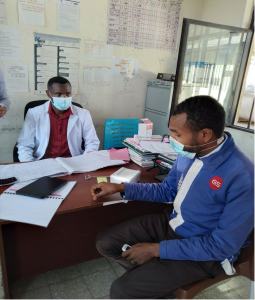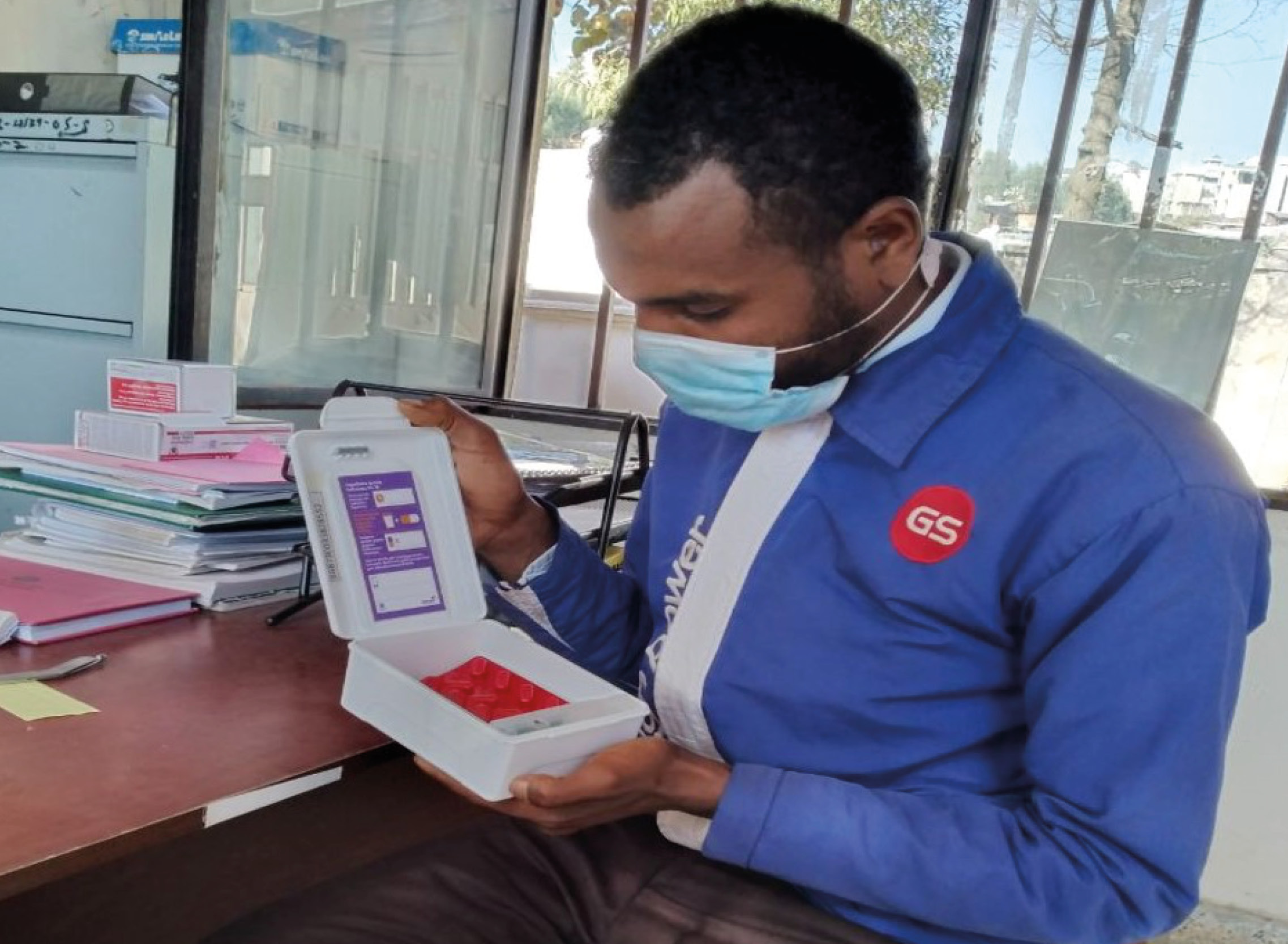Mehamed is a father of one daughter, husband and merchant of used clothes. He lives in Addis Ababa (Ethiopia) and was diagnosed with tuberculosis (TB) at the age of 27. Shortly after his diagnosis, he started his treatment supported by a smart pillbox provided by the ASCENT project, funded by Unitaid and led by KNCV Tuberculosis Foundation. This piece of digital adherence technology (DAT) is supporting him in his adherence and increases the success of his treatment. Mehamed about his smart pillbox: ”It’s like having a private doctor!”
Mehamed’s first symptom was a continuous cough that got worse in the middle of night. He would wake up and cough for approximately 20 minutes. Later on, his symptoms increased. He lost his appetite, got night sweats and felt extremely tired all the time.
This is when Mehamed decided to visit the Torhayiloch Hospital, located in Addis Ababa. The doctor told him he had a mild respiratory illness and prescribed him antibiotics. This did not help. His symptoms continued to get worse over time. One morning he woke up, got dressed and then was too tired to even walk out the door. With the support of his wife, he went to Kolfe Keraniyo Health Center in Addis Ababa. The clinicians performed many tests and diagnosed him with TB.
Mehamed’s first felt fear and hopelessness. “I have a friend – who had to stop working because of tuberculosis. The nature of his job is similar to mine. His family went bankrupt and was forced to live with other family members,” Mehamed recalls. He was worried and questions kept circulating in his mind. “Should I visit the clinic frequently to follow my treatment? Do I have to quit my job? Will my family suffer from a lack of money for basic needs?”
Because of the many pills that are prescribed for TB treatment, patients are often asked to come to the clinic every day to take their medication there. That way the nurses can make sure the treatment is taking correctly and no doses are missed. However, this can be hard for patients, since it’s very time consuming and the traveling back and forth can be expensive. Digital adherence technologies like smart pillboxes, allow patients to take their medication at a time and place that suits them best. They also provide support in reminding patients to take their pills and finish their months long treatment.
Mehamed found hope again when he spoke to a nurse from the Keraniyo health center TB clinic. “I was told about the smart pillbox. The nurse explained me in detail about the technology, how it functions, how to use it, its advantages and more!” To Mehameds question about how to acquire a smart pillbox, the nurse replied: “You don’t have to do anything for it, you’re just asked to participate in the effectiveness study.” Mehamed agreed, signed and took the smart pillbox home.
The use of the smart pillbox
“Every morning at 06:00 AM, the box sends me an alarm and I take my pills. Every time I take them, Teshome (my nurse) receives a message that informs him I took my medication. He encourages me by calling and messaging me that I’m doing well. On the 14th day of my treatment, the box blinks a yellow light to remind me that I need to go back to the clinic to refill my medication. After two of those visits, I will get enough medication to last me a month. It’s like having a personal private doctor!”

PICTURE: Mehamed, visiting Keraniyo Health center TB clinic for his medication refill, and Teshome (TB clinic nurse at Keranoyo health Center) discussing his treatment progress and the help of the smart pillbox. Credit: Tofik/KNCV
Mehamed says he’s feeling a lot better already and hopes he will be able to go back to work again soon, still taking his medication from his workplace. “I believe that I will cure completely from TB and soon will be able to work and provide for my family again. If only my friend had this kind of technology and support when he was diagnosed with TB…”
The healthcare workers point of view
Teshome, the TB clinic nurse at Keraniyo Health Center, explains the advantage of the smart pillbox in providing TB treatment and care: “It allows me to provide differentiated care for my patients. Patients like Mehamed for example, who adhere their treatment with little follow-up, give me the time to focus on patients that need more follow-up and support to complete their TB treatment.”
The Unitaid funded and supported ASCENT project is led by KNCV Tuberculosis Foundation in consortium with The Aurum Institute, London School of Hygiene and Tropical Medicine, and PATH. It is implemented in Ethiopia, Tanzania, Ukraine, the Philippines and South Africa. The aim of the project is to make digital adherence technologies available to all TB patients worldwide.
